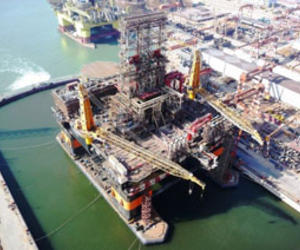Drilling Offshore Cuba Will Be Safe, Cuban Official Says
- Submitted by: manso
- Editorial Articles
- 05 / 13 / 2011

Posted on May 13th, 2011. Cuba offered public assurances on Thursday about the safety of its plans to develop offshore oil fields in the face of U.S. concerns over the island’s ability to handle an oil spill.
With Cuba set to begin large-scale oil exploration in its Gulf of Mexico waters later this year, some political leaders in Florida have urged U.S. President Barack Obama to find a way to halt the plan, saying they are worried about the possible environmental impact on the state from any accident.
Cuban officials sought to highlight their regulatory precautions during an oil safety conference held in Trinidad and Tobago, offering an unusually public discussion outside of Cuba of its oil project.
“For us, the major goal is to prevent these major accidents from happening,” said Fidel Ilizastigui Perez, an official of Cuba’s Office for Environment and Nuclear Safety Regulation.
“The companies must show that they meet all international standards,” he told the conference in Port of Spain.
Perez said Cuban officials had studied and already implemented oil industry safety practices from Britain and incorporated others from the United States.
“We need to think how to prevent these accidents from happening and safety culture will lead the way,” he said.
U.S. concerns about Cuba’s ability to ensure its offshore drilling will be safe increased after last year’s BP PlC oil spill in the Gulf of Mexico. Lax U.S. government oversight was blamed in the disaster.
Complicating any possible Cuban response to an oil spill is a nearly fifty-year-old trade embargo imposed by the United States on Cuba. American oil companies have some of the world’s leading equipment and technologies to deal with a spill, but are restricted from doing business with the island.
Cuba, located just 90 miles (145 kms) from Florida, is hoping the oil project will breathe new life into its economy.
CUBA HAS “LOT AT STAKE”
But the plan has drawn criticism from a U.S. congressman from Florida, Republican Vern Buchanan, who has presented a bill that would authorize punitive action against companies that drill off Cuba’s shores.
Jorge Pinon, a professor at Florida International University who participated in a panel with Cuban officials at the Trinidad conference, said the two countries needed to find ways to coordinate a disaster response even if they do not have diplomatic relations.
“Not only does the U.S. government need to bring Cuba to the table to talk about this, but there is a need for a general license to be given to Cuba so that in the case of national emergency, Cuba would have access to all the resources that are available,” he said.
Cuba’s oil project is being led by Spanish oil company Repsol YPF , which is expected to bring a Chinese-built drilling rig (photo) to Cuba later this year.
Repsol, in partnership with Norway’s Statoil and India’s ONGC , plans to drill at least one well off Cuba, then pass the rig over to Malaysia’s state-owned oil company Petronas.
The oil industry is watching the Repsol project closely. If it finds significant reserves, more companies are likely to want to explore in Cuban waters.
Dan Whittle, a senior attorney at the U.S.-based Environmental Defense Fund, said the Cuban government appeared to be taking the safety issue seriously because of the potential economic benefit of the project.
“Cuba has a lot at stake,” he said. “They’re doing the best they can with limited resources and with obstacles to access those resources.”
“I think we’re seeing the beginning of a more international dialogue on what the Cubans are planning,” he added.
By Desiree Connor (Reuters)
Source: www.offshoreenergytoday.com/
Comments